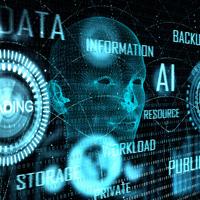Artificial Intelligence (AI) has been subtly woven into the fabric of our daily lives, presenting countless opportunities to enhance our routines, improve our productivity, and enrich our experiences. As we peer into the future, the promise of AI in our personal lives seems bright and intriguing, albeit with cautious optimism.
AI in Everyday Devices
One of the most noticeable trends is the integration of AI into everyday devices. Smart home technologies, like Amazon Echo and Google Nest, are reshaping how we interact with our living spaces. These devices are evolving beyond simple voice-activated commands. Future iterations could predict our needs by learning from our habits, offering suggestions, and alerting us to important tasks. For instance, your smart fridge might suggest meals based on the groceries you have and remind you when something is about to expire.
Personal AI Assistants
AI-driven personal AI assistants are becoming increasingly capable. They help manage schedules, set reminders, and provide information efficiently. The next generation of personal AI assistants might do more than follow commands; they could serve as companions that understand emotional cues and inquire about your well-being. By processing natural language more effectively, they could become more intuitive and conversational, adapting to the nuances of human emotions.
Companies like OpenAI are already making strides with AI models that can engage in sophisticated dialogues. As these models advance, our interactions with machines could become more seamless and meaningful.
Health and Wellness
AI also holds tremendous potential in the realm of personal health and wellness. Wearables and health apps could progress beyond tracking physical activity to monitoring subtle health indicators and predicting potential issues. Imagine a future where your wearable device conducts real-time analysis of your vital signs and offers proactive health advice personalized for your specific lifestyle.
Recent developments in AI healthcare, such as IBM Watson’s ability to assist in diagnosing conditions, hint at a future where AI plays an invaluable role in personal health management. While this technology is not yet foolproof, it offers a glimpse into a world where healthcare becomes more proactive and personal.
Challenges and Considerations
While the benefits are enticing, the integration of AI into personal life does not come without challenges. Privacy concerns remain at the forefront, as AI systems often require access to personal data to function optimally. Ensuring data security and establishing transparent user consent are critical as these systems evolve.
Furthermore, there is the question of dependency. As AI becomes more ingrained in personal lifestyles, individuals might become overly reliant on technology, potentially affecting critical thinking and decision-making abilities. Balancing technology use with human input will be key.
Looking Ahead
The future of AI in personal life is full of potential, yet it's essential to approach it with a balanced perspective. There are many exciting possibilities, from intelligent homes to personal wellness coaches powered by AI. However, we must navigate potential pitfalls associated with privacy, security, and reliance thoughtfully.
As AI continues to develop, maintaining a critical yet open-minded stance will be integral. By doing so, we can harness AI's capabilities to enhance, and not overshadow, the essence of human life. Let us look toward the future of AI in our lives as a partnership rather than a replacement of human capacities.
This journey into the future is not about reaching a final destination but enjoying the possibilities that emerge along the way.




